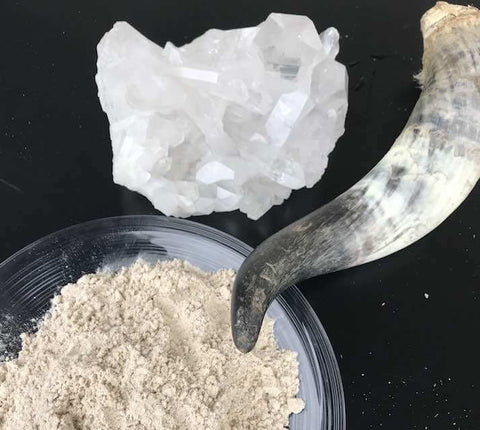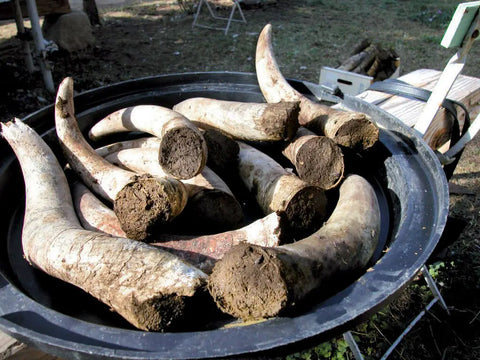Biodynamics continues to divide. Between fervent defenders convinced of the total validity of its precepts and fierce opponents describing it as a method of cultivation with no scientific basis, a happy medium expressing more nuances would perhaps allow us to understand it better. That's good, it's exactly the purpose of this article!
In order to see things more clearly, Let us therefore trace its origins, its precepts, its advantages as well as its flaws. .
The origins of biodynamics
To understand the origins of biodynamics, we must first look at Rudolf Steiner (1861-1925). Austrian author and philosopher, the latter is the founder of Anthroposophy , a school of thought that aims to be close to nature and presents the world as governed by spiritual forces Anthroposophy borrows many concepts such as karma and reincarnation from Indian religions. Already lost? Don't worry, the rest will be more concrete.
Based on Anthroposophy, Rudolf Steiner developed early 1920s several applications derived from these doctrines in the fields of education, medicine and, for what interests us here, agriculture.
So, in 1924 , The latter delivered a series of eight lectures known as Course for farmers . During these interventions, he developed the foundations of an agricultural method emphasizing a powerful link between the earth, living beings and cosmic rhythms . Biodynamics was born.
The precepts of biodynamics
The first and concrete goal of biodynamics is laudable: stimulate the fertility of ecosystems in order to produce better quality ingredients (or wine) and recreate a link between the earth, plant and animal worlds .
To this end, biodynamics therefore prohibits any use of synthetic pesticides (in the same way as organic farming) but also has the following a spiritual and pseudo-scientific dimension for those who adhere to all of its foundations.
So, a certified winemaker
Demeter Or
Biodyvin (the two labels certifying biodynamics) will for example have to take into account
the movements of the planets in order to carry out his work in the vineyard. A
lunar calendar well specific establishes for example the beneficial days for pruning or plowing.
In addition, several
biodynamic preparations must be used by the farmer. In homeopathic doses, we will therefore dilute, for example, certain herbs (nettle, chamomile, dandelion, etc.) in water, then we will "dynamize" the whole thing by a certain number of rotations in order to be able to subsequently treat the vines. To illustrate this point, we most often speak of the
preparation 500 , also called
"horn dung" : cow horns containing dung are buried here for the six winter months. In the spring, the contents will then be energized in water and used to fertilize the soil.
It is also worth noting that biodynamics promotes crop diversity so as not to reduce biodiversity.In addition, this one encourage the earth-animal-plant relationship and that's why Our animal friends (sheep, pigs, etc.) sometimes actively participate in the vineyards in order to fertilize the soil, control weeds or even limit pests.
In summary, Biodynamic agriculture therefore takes up the great foundations of organic agriculture but adds to this a spiritual vision. taking into account the movement of the stars, including certain preparations and conceiving the environment as a non-divisible whole.
To compare conventional and biodynamic agriculture, I often like to take the analogy of modern western medicine and chinese medicine . In the first, we treat the symptoms after they appear and very often thanks to technology and chemistry (cf. conventional agriculture) . In the second, we seek to prevent and anticipate needs of the body so that the disease never appears, all by using practices closer to humans and nature such as acupuncture, herbs, massage etc. (cf. biodynamic agriculture).
Preparation 500 or "horn dung"
The limits of biodynamics
If the founding principles of biodynamics therefore seem very positive and are focused on the unity between human and nature , it must nevertheless be emphasized that this movement of thought and agriculture suffers from many flaws .
So, Steiner's founding principles to realize his Course for farmers do not rely on absolutely no scientific element The ideas presented during this series of conferences, which were subsequently compiled into a book, are in fact very mainly from his one and only intuition ! Therefore, we adhere by pure faith and not on a documented and quantified basis.
In addition, very many esoteric and magical considerations come to parasitize the general credibility of this work. An example: according to Steiner, Preparation 501 (based on horn silica) "strengthens the sunlight and allows a better relationship with the cosmic periphery as well as with the entire cosmos" . Very precise and factual isn't it?
The most fierce opponents of biodynamics therefore reject all of its precepts, arguing that the very foundations of its practice are largely devoid of any common or scientific sense.

Preparation 501 or "horn silica"
Conclusion
So, is biodynamics organic ++ or a pseudo-scientific cultivation method? ?
Two schools rub shoulders with the winegrowers. On the one hand,
the diehards , like the famous
Nicolas Joly , winemaker of La Coulée de Serrant in the
Loire , defending tooth and nail biodynamics as a whole by integrating its spiritual and esoteric parts.On the other hand,
more pragmatic winegrowers , the majority, praising the fact that biodynamics allows them to be more attentive and observant of the vine. They then focus on practicing the precepts biodynamic the most concrete ones such as the non-use of synthetic pesticides and the use of preparations to fertilize soils.
At any rate, It is unfortunate that so few scientific studies are currently devoted to biodynamics. . The establishment of scientific monitoring over several years of its agricultural practices would indeed certainly make it possible to lift the veil on the effectiveness (or ineffectiveness) of certain uses... and to settle the debate once and for all? Probably not, but that is also what it is the beauty of wine: a subjective world of exchanges and sharing, where everyone can detect and appreciate different things.
If you are convinced of the impact of biodynamics on wines, do not hesitate to take a look at our careful selection dedicated to
biodynamic wines ! We also have a large selection of
organic wines and if you are only attached to taste and quality, go directly to
The Illuminated Cellar !
































